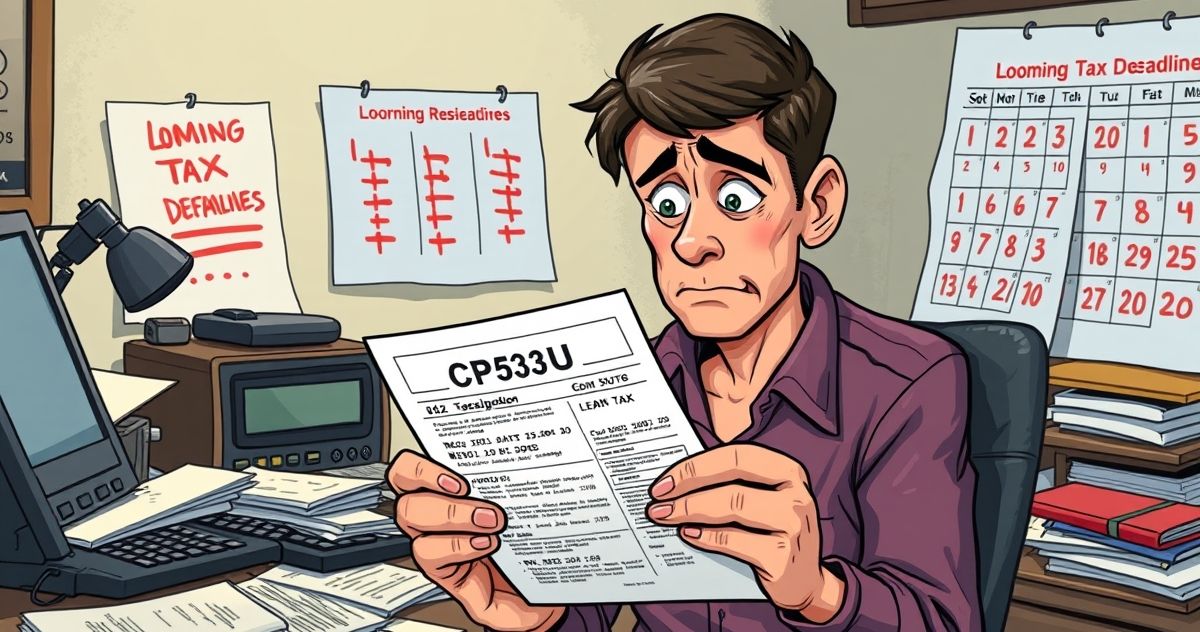Understanding the CP523U Notice
The CP523U Notice is a formal communication sent by the Internal Revenue Service (IRS) to taxpayers who have defaulted on their existing installment payment agreements. An installment agreement is a payment plan for taxpayers to pay off their tax debts in manageable increments rather than in one lump sum. When a taxpayer falls behind on these payments, the IRS issues a CP523U Notice to notify them of the default and outline the potential consequences and necessary steps to rectify the situation.
Purpose of the CP523U Notice
The primary purpose of the CP523U Notice is to alert taxpayers about their default status on an installment agreement and to provide a clear path to resolve this issue. It serves as both a warning and an opportunity for the taxpayer to take corrective action before more severe consequences ensue. The notice ensures taxpayers are aware of their obligations and potential repercussions, allowing them to address the default promptly.
Key Features of the CP523U Notice
The CP523U Notice typically includes:
- Default Notification: A statement indicating that the taxpayer’s installment agreement is in default due to missed or late payments.
- Outstanding Balance: A detailed summary of the remaining balance and any accrued interest or penalties.
- Consequences of Continued Default: Information outlining the potential consequences if the default is not remedied, such as termination of the agreement or enforcement actions like tax levies.
- Instructions for Rectification: Guidance on how to resolve the default, whether by making a missed payment, adjusting the payment schedule, or contacting the IRS for further assistance.
Filing or Compliance Requirements
To maintain compliance after receiving a CP523U Notice, taxpayers must take immediate action. Required steps usually include:
- Payment of Outstanding Amount: Making up any missed payments promptly to return the account to good standing.
- Communication with the IRS: Contacting the IRS to discuss adjustments to the installment agreement if the current terms are unmanageable.
- Documentation: Providing any necessary documentation if there are disputes about the default status.
Penalties and Consequences
Ignoring a CP523U Notice can lead to severe consequences. Key penalties include:
- Termination of the Agreement: The IRS may terminate the existing installment plan, demanding the full amount due immediately.
- Enforcement Actions: The IRS could initiate liens or levies on the taxpayer’s assets or wages.
- Increased Penalties and Interest: Accumulating financial charges on the outstanding debt, increasing the total amount owed.
The Importance of the CP523U Notice in Tax Resolution
The CP523U Notice plays a critical role in tax resolution and financial compliance. It provides taxpayers with a clear directive to address their payment defaults before issues escalate. This notice aids in preventing tax-specific challenges, reinforcing the importance of maintaining communication with the IRS and adhering to established payment plans.
Additionally, the CP523U Notice acts as a pivotal tool in resolving tax debt by empowering taxpayers to engage with their obligations actively. Timely response to this notice can mitigate penalties and prevent enforcement actions, aligning with broader financial compliance goals.
For those struggling to meet their financial responsibilities, the notice facilitates negotiation for manageable payment plans or modifications to existing agreements. This proactive approach helps taxpayers avoid broader financial distress and contributes to a more stable economic standing.
Steps to Avoid Future Defaults
To avoid defaults and subsequent CP523U Notices, consider the following steps:
- Maintain Regular Payments: Set up automatic payments or reminders to ensure consistency in meeting installment obligations.
- Communicate Promptly: If financial difficulties arise, contact the IRS immediately to discuss potential adjustments before falling behind.
- Review Financial Plan Regularly: Regularly evaluate your financial plan to adapt to changing circumstances and maintain compliance.
Conclusion
The CP523U Notice is an essential communication from the IRS that highlights the importance of remaining diligent and proactive in managing tax obligations. By recognizing the critical points outlined in the notice and taking corrective action, taxpayers can maintain their standing with the IRS and avoid further complications. Understanding the implications of the CP523U Notice and acting responsively are pivotal steps in maintaining financial stability and adhering to tax compliance standards.

